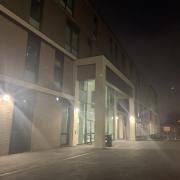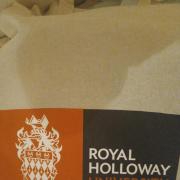
Many of our life circumstances are influenced by what may to be flukes beyond our control: the randomness of our genetics that make up our race and gender, and the circumstances in which we grew up like our class and our living environment, all of which influence our level of privilege. As this quality is so individual to all of us, it is often important within schools that our teachers consider students’ privileges - or conversely, the ways in which we may be marginalised - and to determine ways in which our education system can reconcile this with what and how we learn in the classroom.
This idea has been summarised within the term of “cultural competence”, which has been defined by the National Education Association as the quality of “having an awareness of one’s cultural identity and views about difference, and the ability to learn and build on the varying cultural and community norms of students and their families. It is the ability to understand the within-group differences that make each student unique, while celebrating the between-group variations that make our country a tapestry.”
However in real-life British education, this isn’t always the case, and such inequality often manifests itself in the existence of private schools, and their differences to normal state education. Such independent establishments can be on sale for an average £14,500-a-year secondary day place or £30,500 for boarding; these funds are put to good use, as studies in Francis Green and David Kynaston’s book “Britain’s Private School Problem”, public schools spend up to three times as much per pupil than in state schools. Much of this is spent on lower student:teacher ratios and resources, as well as egregious projects in attempts to attract rich, international elite; for instance, Eton has an Olympic rowing lake on which the 2012 Olympics were held, and private schools in London have a total of 59 theatres (compared to 42 in the West End).
These extraordinary facilities are the reason public schools have started to produce not just Boris or Blair, but actors such as Tom Hiddleston and Benedict Cumberbatch, musicians Mumford & Sons and Chris Martin, plus a third of 2012 Team GB medallists - and with the potential connections to game the university system, it’s hardly a surprise that private schools get 40% of Oxbridge offers and their alumni end up running the country.
However it raises the question: why, in a democracy that proclaims to allow social mobility, do schools that educate just 7% of the country but account for 74% of judges, 71% of military generals and 29% of MPs still exist? Whilst general public opinion seems to favour reform or even abolition, when it comes down to it the answer remains: “If you can afford it, why would you not?” and being able to send your child to prestigious schools like Eton perpetually associates yourselves with a dreamworld akin to driving a Ferrari or owning a mansion. When Stephen Geddes, the son of a supermarket worker from Dingle, Liverpool, was accepted on a scholarship to Eton, the online comments were not, “Why are you perpetuating entrenched inequality?” but, “Well done, young man. The world is your oyster.” As if he’d won The X-Factor or the lottery, which in every sense he had.
So the question about what to do with such symbols of privilege, or if anything should be done at all, remains unsolved - and this is far from a new dilemma. For instance, Labour education minister’s civil servant in the 1960s said he couldn’t decide whether “these schools are so bloody they ought to be abolished, or so marvellous they ought to be made available to everyone”.
Outright abolition would demand that all private schools be compulsorily integrated, as was the case in 1970s Finland, has not been explicitly suggested even by Corbynite ministers and others critical of independent education. On the other hand, others have gone as far as to make the tongue-in-cheek comment that an upside of Brexit would be that it would allow the nationalisation of Eton since we may choose to break free of the European Convention of Human Rights, which “guarantees the right to open and run a private school”. There would be legal challenges, to say the least, but it’s fun to imagine why types of people might have access to Etonian education if this were ever to occur.
Other more plausible suggested schemes already in place include the Fair Access Scheme, in which private school students are required to select a proportion of state-funded students (starting a third but gradually increasing) in accordance with government criteria (although not necessarily academic) so such places were an extension to the state system. They may also support contextual university admissions, whereby eligible state school students may be granted slightly lower offers or bursary packages to taken into account they lack the privilege of their private peers.
However if there was anything that might discourage the growth of private schools, it will be the idea that parents can spend a fortune on education for their children and still not be guaranteed a Russell Group university placement, as more and more often selective state schools are beginning to achieve results equal or even better than their private counterparts. For example, Brampton Manor Academy, or “the Eton of East London” has just received 41 Oxbridge offers. If the success of the brightest state schools continues to follow such a pattern, this will undoubtedly be the biggest threat to private schools.
Besides, due to the fact that the multicultural nature of British society means that diversity and inclusion are celebrated, being raised in bubbles of privilege and exclusivity could be seen as as much of a disadvantage as it is an advantage. The ability to understand, respect and work with people of all backgrounds is highly important and valuable in the world of work, along with the importance of academics. As a girl from a standard comprehensive, whenever I visit an elite school I find myself filled with both awe as well as a sense of doubt that being bathed in birth with luxury and superior resources may not be wholly good for children.
Already some public schools are attempting to adapt, particularly through extending their bursary schemes. Almost a quarter of Etonians are on bursaries, and these present a win-win for all those involved: they benefit less privileged and BAME children and so decrease criticisms of exclusivity, whilst enabling the school to procure the brightest and the most driven working-class children, thereby potentially enhancing their league table place.
Meanwhile other elite schools choose to raise their PR game, with websites declaring that the academic excellence they produce is leavened with a unique “mindfulness” and “nurturing environment” as an attempt to appear innovators of modernity, rather than conduits for traditionalism.
Whatever your stance on the place of public schooling in modern Britain, it is ultimately impossible to ignore that most arguments on both sides recur throughout the decades. Yet exclusive education is only superior as long as it does better than the other kind. The best London state schools now beat their private neighbours on admissions to top universities. More of that, better investment in the development of teachers and a consistent policy on improving schools are better solutions than the long-threatened clampdown on private school.



























